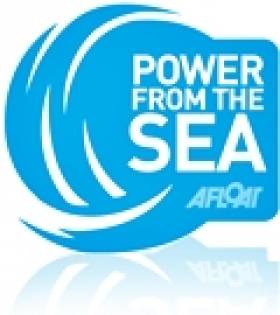Displaying items by tag: John Swinney MSP
Scotland To Host World's Biggest Tidal Power Array
Scotland's west coast will be home to the world's largest tidal power facility, it has been announced.
The £40 million (€45.9 million) 10MW tidal array, to be developed by ScottishPower Renewables in the Sound of Islay, will generate power for more than 5,000 homes.
Scottish Cabinet Secretary for Finance John Swinney, who signed off on the deal, described the project as "a milestone in the global development of tidal energy".
"Scotland's seas have unrivalled potential to generate green energy, create new, low carbon jobs, and bring billions of pounds of investment to Scotland," he said.
The project comes in tandem with the consultation process for the Scottish government's National Marine Plan, intended to highlight the best opportunities for investment across all marine industries.
Energy & Environmental Management has more on the story HERE.
























































